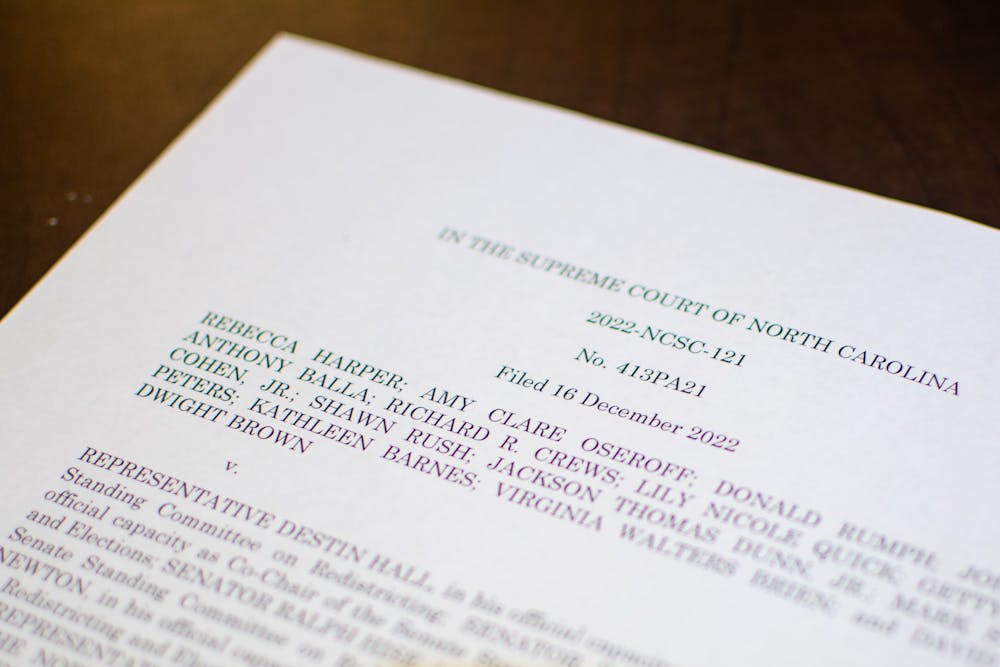The new 5-2 Republican majority on the N.C. Supreme Court took a rare step toward rehearing two recently decided cases on partisan gerrymandering and voting rights on Feb. 3, suggesting it is open to overturning them altogether.
The decision to rehear the cases — which found a voter ID law discriminated against voters of color and reaffirmed the court's decision to redraw election maps — comes just about a month and a half after they were handed down by an outgoing Democratic majority.
Harper v. Hall, the gerrymandering case, determined that state Republicans gerrymandered maps to produce a partisan advantage in the state's congressional delegation and in the state House.
A reheard case is unusual at the state Supreme Court level in North Carolina. A petition for rehearing has been granted by the court only twice in the past 30 years.
Bob Orr, who served as an associate justice on the N.C. Supreme Court from 1995 to 2004, said cases can be reheard on two grounds: the misapprehension of facts in the case or the misapprehension of the law. He said the latter is what these new hearings are based on.
Much of the petition for rehearing in Harper v. Hall, which was filed in January by state legislative leaders including N.C. Senate Pro Tempore Phil Berger (R-Guilford, Rockingham) and N.C. House Speaker Tim Moore (R-Cleveland, Rutherford), recounts Chief Justice Paul Newby's dissent in the December decision.
Newby argued that gerrymandering is a non-justiciable issue because it is solely the responsibility of the General Assembly to draw election maps.
Orr said the rehearing decisions are based on first impressions of law and that Harper v. Hall's rehearing is unusual since cases are normally decided on well-established statutes.
"There's no established body of law saying that decision should go one way, except for the decision by the Supreme Court," he said.




